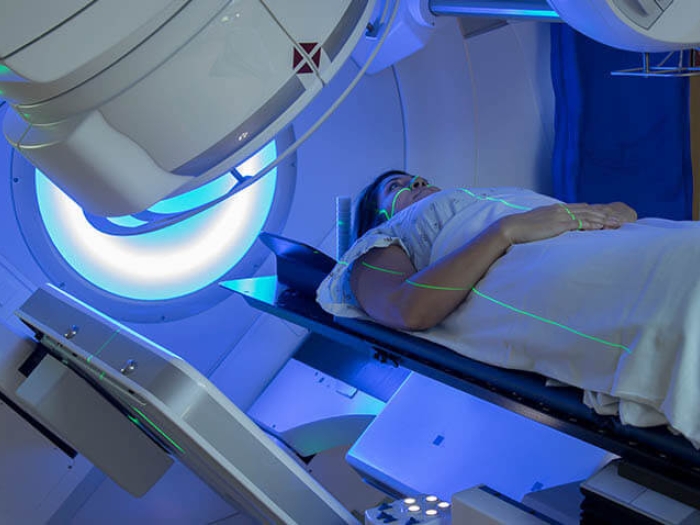A new study finds doctors are appropriately using a genetic test to measure breast cancer recurrence risk and to make tailored treatment recommendations.
7:00 AM
Author |

One of the earliest widespread applications of precision medicine in cancer care is helping patients and physicians decide whether chemotherapy is needed, a new study finds.
SEE ALSO: How a Small Implanted Device Could Help Limit Metastatic Breast Cancer
Researchers reviewed a test that assesses the risk of breast cancer recurrence and whether chemotherapy is likely to help lower that risk in women with early stage disease. The test looks at 21 genes known to increase risk of cancer recurrence. The idea is to avoid chemotherapy in women at such low risk that they aren't likely to benefit from it and to ensure chemotherapy is recommended for women with higher risk.
"The idea of precision medicine is to give patients the treatments that are the most likely to help and to avoid needless side effects," says study author Christopher Friese, Ph.D., R.N., a professor at the University of Michigan School of Nursing.
Researchers surveyed 1,527 women with early stage breast cancer, noting whether they received the 21-gene recurrence score assay test and whether they subsequently received chemotherapy.
Currently, cancer care guidelines recommend the test for women with specific tumor features whose cancer has not spread to surrounding lymph nodes. The study, published in Cancer, showed that most doctors recommended the test in line with these guidelines, though 13 percent of women with cancer in their lymph nodes still received the test. Current guidelines typically recommend that these women should always receive chemotherapy, and therefore do not need the test. An ongoing clinical trial is looking at the value of the test for this group.
Among patients who had the test, the results aligned with the decision for or against chemotherapy: 87 percent of patients with a high score had chemotherapy. For patients with the most favorable prognosis and the lowest test scores, only 3 percent received chemotherapy, compared to 13 percent of women who did not have the gene assay test but had a favorable prognosis.
"Chemotherapy has substantial side effects. Improving chemotherapy recommendations to those who truly stand to benefit would reduce complications and improve quality of life for many women," Friese says.
Improving chemotherapy recommendations to those who truly stand to benefit would reduce complications and improve quality of life for many women.Christopher Friese, Ph.D., R.N.
An area of opportunity
Most patients accurately recalled receiving the test — the researchers used registry and laboratory data to confirm that. Nearly two-thirds thought the test was helpful, saying that their results helped shift their opinion for or against chemotherapy. Patients reported high satisfaction with their treatment choice.
SEE ALSO: One-Third of Breast Cancer Patients Consult PCPs About Treatment Options
Based on the diverse sample of patients, the researchers found that race or ethnicity did not play a role in the use of the recurrence score assay or in chemotherapy recommendations.
Although most examples of precision medicine involve clinical trials, the recurrence gene assay shows how precision medicine can be used in everyday clinical care. Overall, the study shows use of the test, treatment recommendations and satisfaction all align. But the researchers note one opportunity.
"Only 60 percent of patients accurately recalled their test result," Friese says. "This suggests that while precision medicine for breast cancer has left the station, we have left a few women behind. There's opportunity in the oncology community to improve how we explain to women the purpose of these tests, how to interpret the results, and what the results mean for their breast cancer treatment."

Explore a variety of health care news & stories by visiting the Health Lab home page for more articles.

Department of Communication at Michigan Medicine
Want top health & research news weekly? Sign up for Health Lab’s newsletters today!





